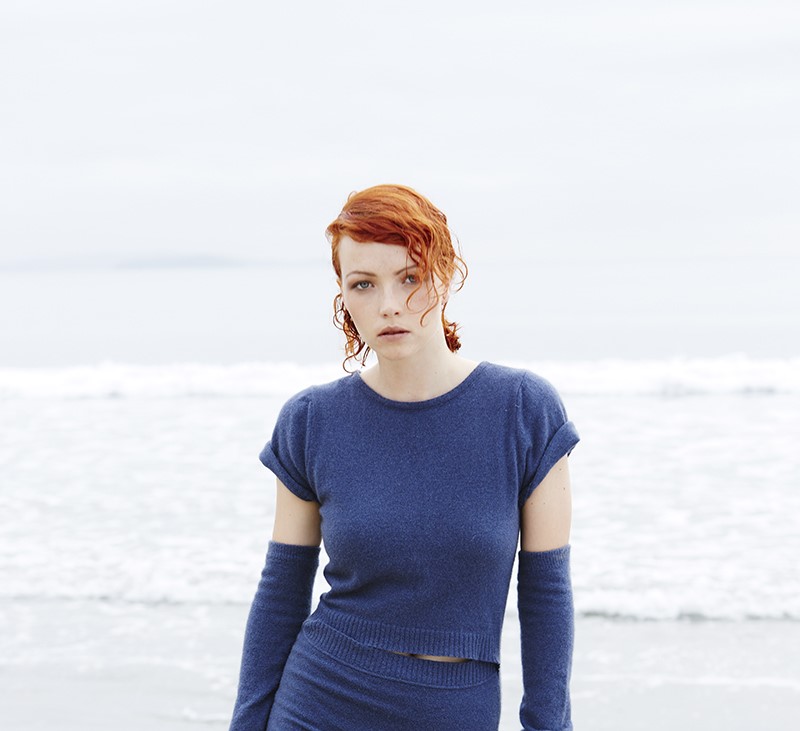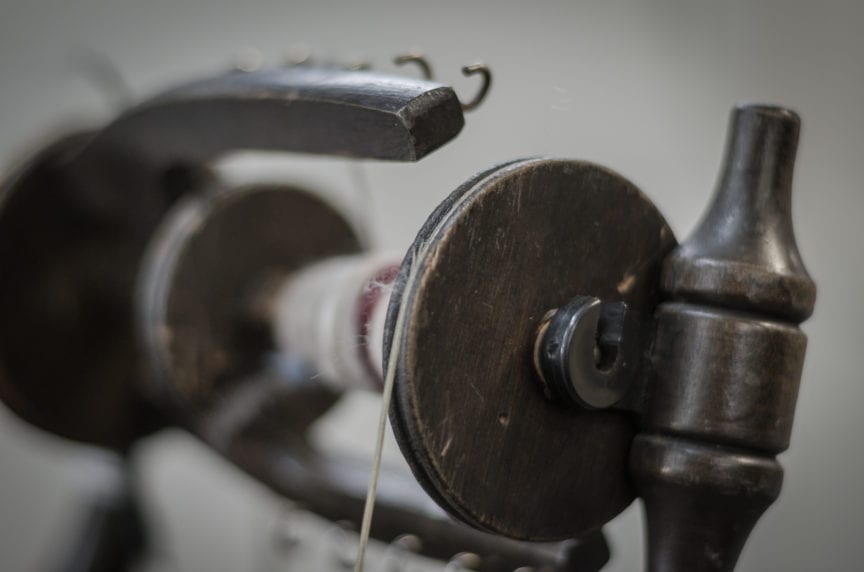Skilled textile craftsmanship and traditional artisanal makers are a huge part of the fashion industry. With specialised expertise, they manufacture fabrics and garments, create embellishments and historically have provided inspiration to designers all over the world. In every culture there are different traditional textile crafts and ways of making that are echoed in the commercial production of textiles and fashion globally. Hand crafts and small batch textile manufacturing are on the rise, as consumers want to support smaller, localised businesses and own unique products that are not mass produced.
Traditional artisanal textile techniques in every culture
Traditional textile hand crafts and techniques flow through many different cultures, all with unique aesthetics and end uses. The fact that these textiles are bespoke and handmade by highly skilled artisans, aligns them with the luxury industry’s values. There is an exclusivity to artisanal products, that can be valued by consumers, while simultaneously empowering all while supporting the maker.
Whether it be Yakan weaving in the Philippines, backstrap weaving in Peru, Indian Kalamkari dyeing, Japanese Shibori, Cook Islands Tivaevae or handmade Persian Rugs, specific textile skills and traditional techniques vary greatly from culture to culture. There is real value in passing these traditions down through generations as well as identifying the textiles as custom made luxury. “Culture, history and heritage, are priceless, and the authenticity of products made with heritage skill sets are a means of reinvigorating the over exposed branded luxury fashion market” Sass Brown, the author of paper Can Global Craft and Artisanship be the Future of Luxury Fashion? She discusses the need for global artisans to be valued and incorporated into the luxury fashion industry, in an age were mass production is contradicting the very qualities that make a luxury product luxurious.
Handweavers create bespoke fabrics with Brushtail Possum yarn Perino
In New Zealand, artisans are working with unique yarn made with the fibre of New Zealand’s most notorious pest, the Brushtail Possum. Perino yarns are created by blending luxurious Brushtail Possum fibres with other high end fibres such as cashmere, silk and fine merino. Perino blended yarns are soft to the touch like 100% cashmere, adding warmth, and due to the unique yarn structure, creates an interesting texture of fibre ‘burst’ on the surface of the fabric.
Husband and wife team Sue and Rod McLean, are the artisans behind their boutique weaving mill in Oamaru in the South Island of New Zealand – McLean & Co. Rod weaves intricate custom made fabrics both for customers and their own end products. Sue creates a range of homewares and garments out of the handmade fabrics. Sue describes what she enjoys about their handmade processes; “I love the transferal of idea to finished product, and knowing that we made it; just us, taking an idea and the raw product and creating something unique and beautiful.” Recently Rod has started weaving with Perino yarns, creating truly beautiful fabrics with luxurious elegance.
What do you find interesting about using Perino Yarn? How does it compare to other yarns?
Rod: Perino yarn is beautiful to weave with; the lightness of the yarn on the machinery enhances my whole experience of the weaving process. For me Perino comes a close second to weaving with super fine merino which is my favourite because of its strength and lightness.
Sue: I love the pure luxury of working with Perino.
How did you learn to weave? How long have you been weaving?
Rod: I have been weaving for ten years. I am mostly self-taught, having had only a couple of lessons from the looms previous owner. It’s been a lesson in trial and error, patience and fortitude!
Sue: I can weave, not very well … seeking time, patience and fortitude!
How has handmade grown in the time you have been working within the textiles and fashion industries?
Rod: Peoples appreciation of the handmade is growing slowly but very definitely. It’s not just the textiles they love, it’s the looms and the whole back story. So many people can’t fathom that the yarn comes to us on cones and leaves as useable fabric and that I’m the person who actually made it.
Sue: It is exciting to be part of the global slow fashion movement. We meet people from all walks of life, from all over the globe – craftsmanship and the handmade are becoming valued again as people realise there is much to lose if ancient and sustainable skills are lost
Have you noticed any changes in customer habits in the time you have been making?
Rod and Sue: If people want something and they can afford it they will just buy it. Everybody loves what we are doing, but price is definitely a deciding factor for the majority. However we are noticing that people will save up to buy something unique because they value the craftsmanship and quality of the product we have made.

Stunning Elka Knitwear designs made with Perino by Woolyarns brushtail possum yarn. Image source: Elka Knitwear.
Elka Knitwear creates innovative designs that utilise the properties of Brushtail Possum
Kate Mischler, designer and founder of bespoke New Zealand label Elka Knitwear, learnt how to knit at the age of 5 from her Grandmother in Russia. She has built her skills and now explores both handknitting and machine knitting in her luxurious knitwear collections. The in depth knowledge of knitting processes allows Kate to push the boundaries of knitting machines, creating truly unique garments. “Often my creations start off as hand knitted and then translate into machine knit. I love looking at certain restrictions imposed by a knitting machine as an exciting possibility not a limitation.” Kate’s continued work using Perino yarns flawlessly displays the uniqueness of Brushtail Possum, with edgy designs that suit high fashion customers.
What do you like most about what you do and your handmade processes?
The most exciting thing about hand knitting is that sky is the limit and rules are there to be broken. You basically have no restraints while designing a piece compared to some rules you may have to follow with machine made garments. Also hand knitting for me is very organic and fluid process adjusting my design, stitch, pattern as I go. Also it’s with my needles in my hands when I come up with most of my new machine and hand knitted designs.
What do you find unique about Perino Yarn?
Ever coming across this wonderful yarn for the first time it has undoubtedly become my fibre of choice. It has mostly replaced my cashmere and silk blends I used to work with. I believe it is the best yarn there is. The weightless warmth, drape and resistance to pilling in my opinion is superior to most other fibers in the world. In short, absolutely love the yarn, love working with it!
Do you see a trend towards handmade and bespoke pieces? Do you have many repeat customers?
Most of our customers who experience the luxury of the limited edition and bespoke pieces do come back which is lovely and very rewarding for us. I believe avoiding mass produced fast fashion is the way forward. To buy less and buy better is not only good for your personal style, your wallet and feel good factor, but is also undoubtedly good for the environment.
Consumers support small batch textiles and fashion businesses
Consumers attitudes are shifting to look at the ethics behind a brand, which is good news for small batch textiles and fashion businesses with a positive sustainability story. Designers working with global artisans, while being respectful of culture as well as providing fair pay and working conditions not only preserves tradition, but empowers the makers.
Designers are getting on board, helped by groups such as the Ethical Fashion Initiative connecting designers with artisans and creating a “value for development”. The initiative has worked with international designers including Karen Walker, Edun, Marni and Mimco working with Artisans from various countries including Kenya, Haiti, Cambodia, Ethiopia and Ghana. It is providing a way of connecting designers and makers to create better working environments, fair wages and varied avenues for work in global communities. High profile brands help to share the background stories of products, encouraging consumers to think about what goes on behind the scenes of their products. After the order is complete the EFI evaluates the conditions for the artisans and the effects of the employment on individuals, families and communities.
Some influential fashion houses such as Chanel, show huge appreciation for the artisans behind their brands. Chanel, after fearing the decline in skilled craftsmanship in French Ateliers, has been acquiring savoire-faire maisons since 1985, in a bid to keep them a part of the couture fashion industry. “Chanel has six collections a year for ready-to- wear, one collection every two months, and most of the work is done in the last two weeks. We knew they would be key to the future of the brand, and that we had to preserve what they do. If you have nobody to manufacture during those two weeks, you are dead,” Bruno Pavlovsky, Chanel’s president of fashion explains. It is beneficial to have close proximity to the traditional maisons for design teams to turn work around quickly, as well as monitoring the high quality expectations of the iconic fashion brand.
Manufacturers and makers using traditional techniques throughout the fashion and textile industries are highly skilled craftspeople. Consumers in New Zealand and around the word are celebrating these makers by buying traditionally manufactured products. Appreciation and preservation of these skills both empowers individuals, families and their communities, as well as sustaining priceless cultural traditions.
Extra Reading:
For a 30 photo gallery of beautiful traditional textiles from around the world, click here.
For a video inside Lesage, one of Chanel’s embroidery maisons. The video from Business of Fashion opens up into the world of couture embroidery.
Fashion designer Liz Pape of Nashville based label Elizabeth Suzann, delves into the true cost behind garment manufacturing and the differences it can make to the quality of clothing as well as the livelihood of the makers.
